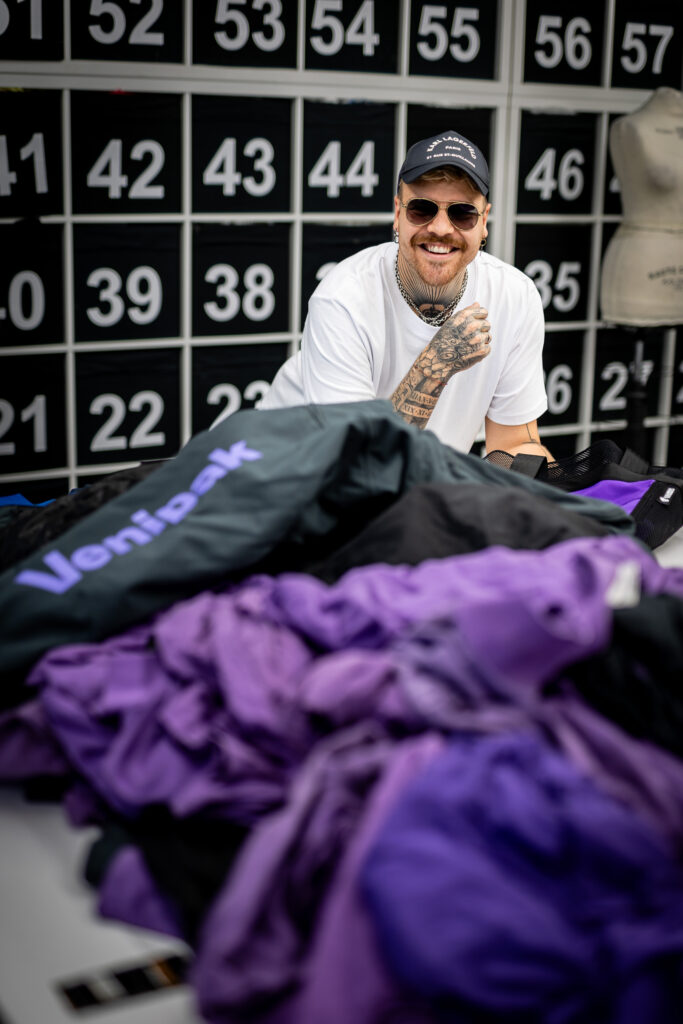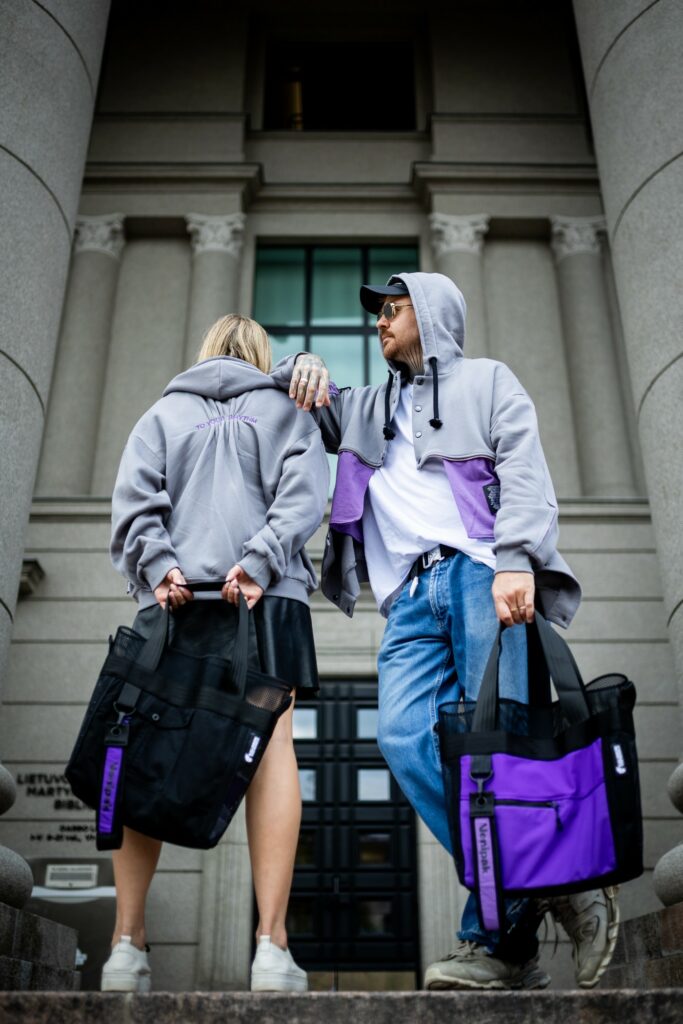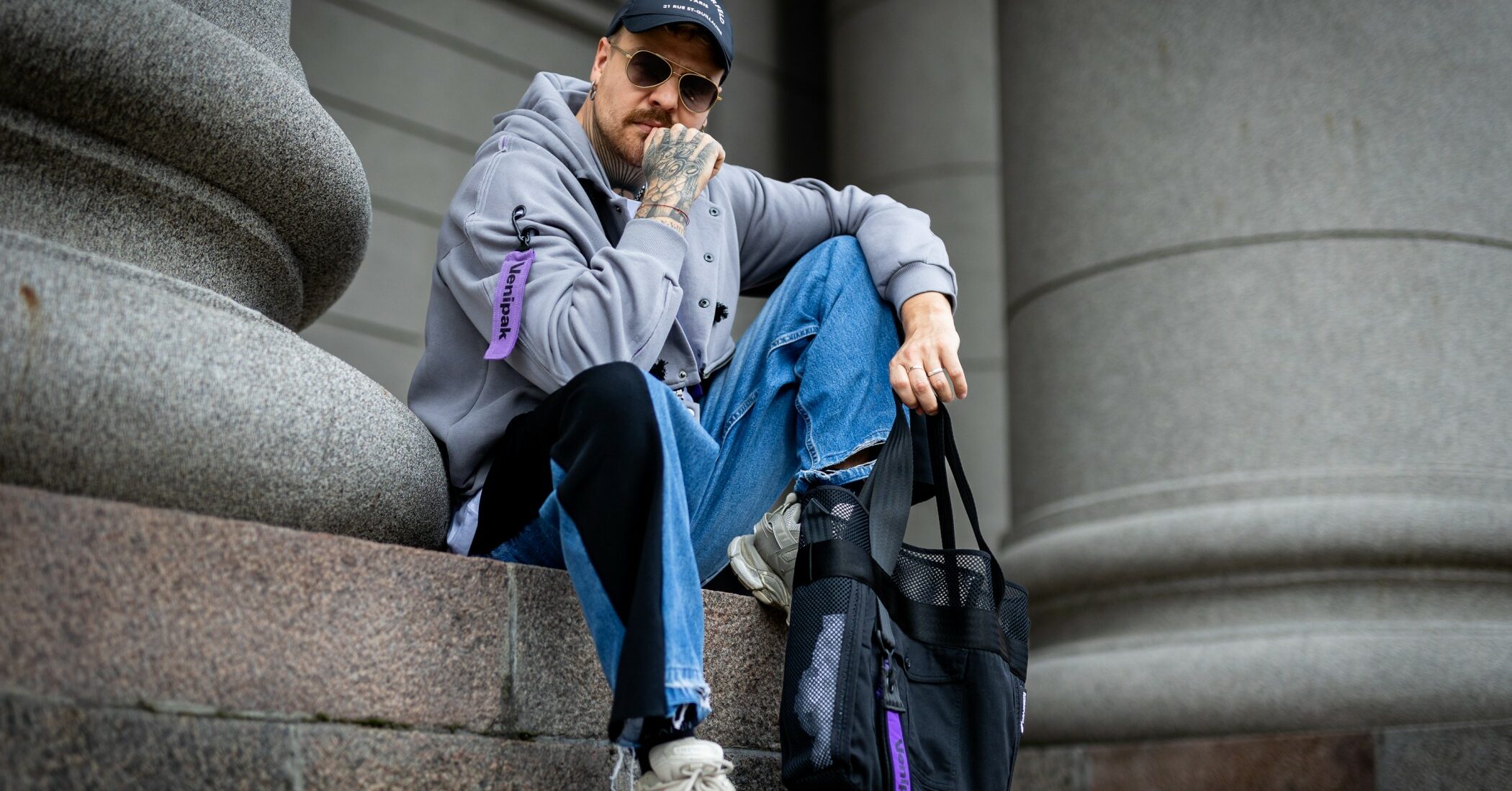The founder of the fashion house “Robert Kalinkin,” designer Robert Kalinkinas, has surprised with another bold, unexpected, and stylish project. Teaming up with the international delivery company “Venipak,” he has introduced a unique and sustainable line of sweatshirts and shopping bags, made from recycled parts of old courier uniforms.
Mr.Kalinkinas reveals that the idea stemmed from the desire to create an unconventional product that would appeal to everyone, be widely worn, and, most importantly, have meaning. “After discussions with our partners at ‘Venipak,’ we decided we needed an outer garment and an accessory, so we narrowed down our search and chose to create a bag that’s convenient for carrying parcels to or from lockers, as well as a sweatshirt that’s not just a design object but also conveys a message of sustainability,” says Mr.Kalinkinas.
A Broader Vision
The stylish sweatshirts and shopping bags were crafted by cleaning, disinfecting, and recycling old courier uniforms that were originally meant for disposal, along with using various industrial accents and accessories that are part of the logistics industry: belt straps, car belt remnants, and carabiners.
The innovative designer, known for his creative ideas, emphasizes that most collaboration offers he receives come from companies somehow related to fashion. “A large portion of the parcels delivered by ‘Venipak’ consists of clothes and other fashion industry products,” he says. “Today, with so many businesses that are socially responsible, both in terms of sustainability and morality, it’s relatively easy to decide whom you want to collaborate with and whom you don’t.”
“We are delighted with this joint project and enjoyed the entire creative process, from concept to execution. This partnership is not just about fashion; it’s about finding new ways to express our values and surprise our customers,” adds Asta Raudonienė, Global Marketing Director at Venipak Group.

Reusing Items Meant for Disposal
According to the designer, the entire creative process took about 4-5 months, during which productive meetings helped shape the direction of the idea: “Our goal was to use up to 30% of old materials. For the sweatshirts, we chose organic cotton, which we supplemented with recycled elements and accessories.”
The bags were created in the same way: part of them consists of new materials, such as synthetic mesh, while the other part is made from recycled pants, jackets, and other items that had “lived their lives,” but were cleaned, recycled, and given a new life.
“Robert’s creativity and passion for his work resonate with the values of our team, so we gave him complete freedom to interpret our brand in his own way. The result is a collection that is not only innovative and bold but also reflects our perspective on creativity and new possibilities,” adds A. Raudonienė.
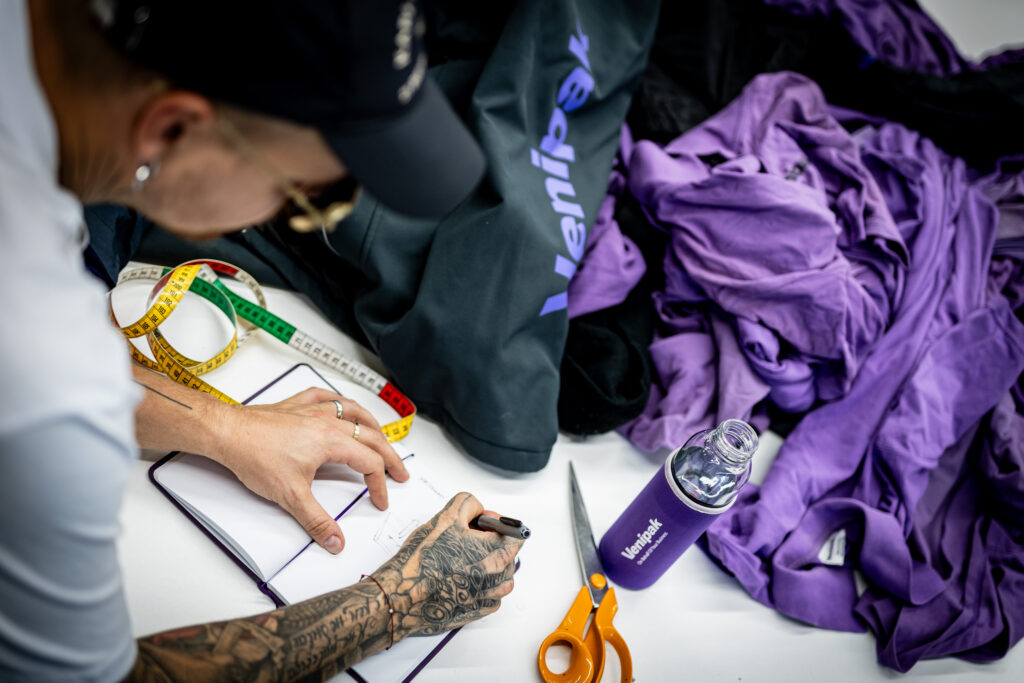
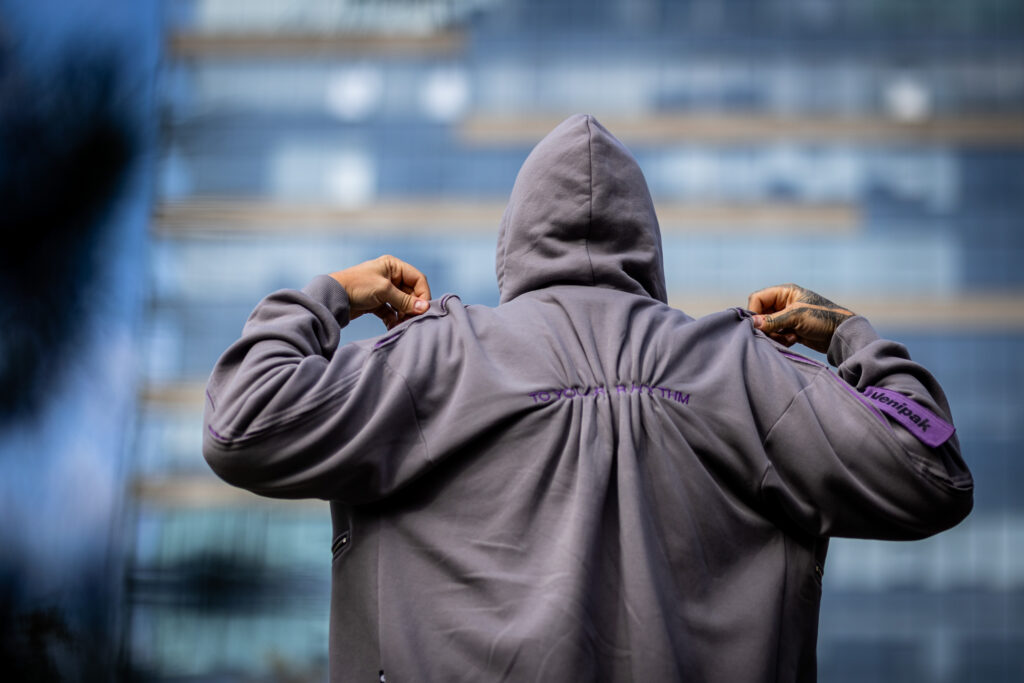
Limited Production
The designer emphasizes that the philosophy of recycling is a hallmark of his fashion house. “There are clients who are intimidated by such proposals, but ‘Venipak’ fully supported the idea. It’s no surprise, as the company employs almost 1,000 couriers, so the amount of unnecessary uniforms is quite significant. Each uniform consists of at least three elements – pants, a shirt, and a jacket. Instead of disposal, these garments can be washed, disinfected, dyed, and given a new life, becoming highly desirable, stylish items,” says Mr. Kalinkinas.
The quantity of these stylish sweatshirts and shopping bags is limited. The creators note that these items will not be sold; instead, they will be distributed for free during various “Venipak” promotional activities.
